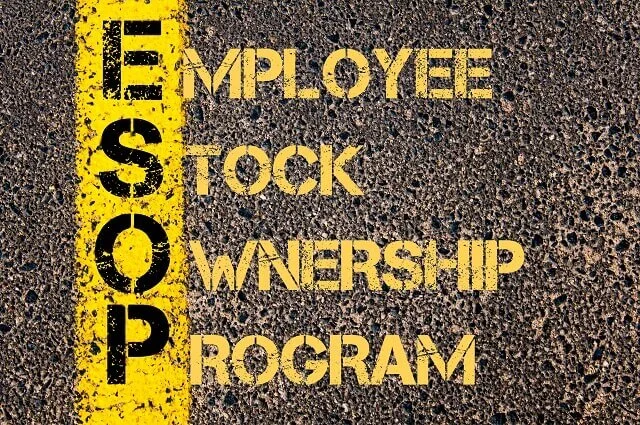Many business enterprises find succession planning to be a significant challenge. Business owners often confess that it is difficult to concentrate on “what’s next,” when most of one’s time and energy is concentrated on current performance. In closely held businesses, the challenge can be even more daunting.
A common problem grows from the fact that while the current generation of owners has all the passion and interest in the world, that commitment to the business isn’t always shared by the next generation. The owners would like to sell the business to a new group of committed individuals. What can the owners do?
Answer May Be Right Before the Owner’s Eyes
Recognizing that the answer to succession issues might be right before the owners’ eyes, some of the most astute are turning to employee stock ownership plans (commonly called “ESOPs”). A firm’s employees may be the perfect “new owners,” since they know the business and they have a strong vested interest in its long-term success.
ESOPs: What Are They?
An employee benefit plan is a popular, formalized arrangement that allows employees to take an ownership interest in the company. From a management standpoint, an ESOP can be a very useful tool for aligning key employees’ interests with those of the owner. Properly crafted, an ESOP can allow owners to cash out of the business, either gradually or in one fell swoop. One key advantage: By selling the business over time, owners can gradually transition control to a new management group.
Advantages of ESOPs in Succession Planning
Not only do ESOPs help transition management, they can offer other advantages, including the following:
• ESOPs can permit transfer of control without the need of borrowing significant sums to purchase all of the owners’ shares. ESOP arrangements usually allow the company to maintain its commercial lines of credit.
• The ESOP may create a means of selling the owners’ interest where no market exists.
• The firm’s employees can receive an ownership interest in the firm, yet the ESOP benefits are not generally taxed until the employee receives a distribution.
• The ESOP can be structured so that it can borrow to purchase shares to fund itself.
• The ESOP can also be so structured that if an employee retires or leaves the company, his or her interest is repurchased at an appropriate valuation. For key employees, this arrangement can be coordinated with life insurance to fund the repurchase.
• In some situations, the owners can achieve significant tax savings through the use of trusts, including charitable remainder trusts and charitable remainder unitrusts.
ESOPs Aren’t For Every Business
ESOPs are not for everybody. For example, one obvious limitation: They cannot be used if the business structure is that of a partnership. The same is true for most professional corporations. Since an ESOP is generally a qualified plan for purposes of ERISA, the costs of creating and maintaining such a plan must be carefully weighed. Owners should check with legal and financial advisers as to whether the particular ESOP arrangements they contemplate will result in unwise dilution of the owners’ interest. The costs of running the plan and implications of diluting the owner’s share of the company will need to be weighed against the tax and diversification benefits.
Succession Planning Is Serious Business
There’s an old adage: If, while you’re running, you concentrate too closely on the ground just in front of your feet, you’ll never see the cliff until you run off its edge. The same applies for succession planning. Prudent business owners don’t just concentrate on execution; they plan for tomorrow. Succession planning involves a host of financial and legal issues that must be carefully considered.
The law firm of CKB VIENNA provides legal and business consultation to nearly every type of business, from large to small – even to startups and nonprofits. We have crafted succession plans of all shapes and sizes and stand willing to assist you and your business with virtually any legal need. While the firm is skilled in all forms of litigation, our attorneys provide preventive training and offer guidance designed to avoid the consequence and cost of litigation. CKB VIENNA LLP has a long history of representing clients in all types of business issues and disputes. We have offices in Rancho Cucamonga, San Bernardino, and Los Angeles. Contact us by telephone at 909.980.1040 or complete our online form.

